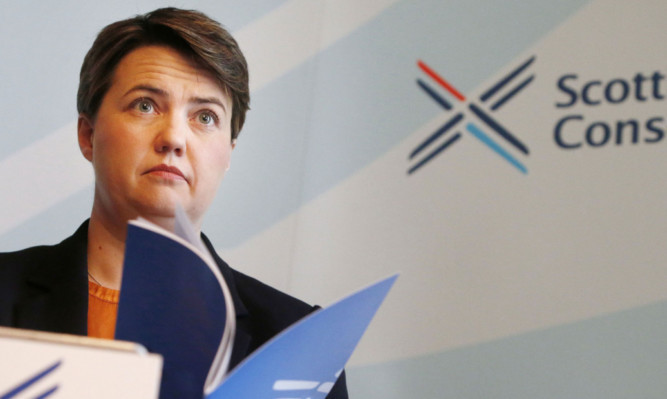There is a group of voters in Scotland quite a big group who must feel they are living on another planet. This lot have been largely sidelined by the main political players here, and only emerged from the shadows during the referendum campaign, many at the eleventh hour when they feared Armageddon.
Now, having done their bit to save the Union, they seem to have disappeared again, while the party that best represents their interests has retreated from the frontline.
Where are the Scottish Tories? All the talk at the moment is about the Labour party getting its act together, but what are the Conservatives doing to capitalise on their success in September?
On announcing his resignation as a Labour MP, Alistair Darling said he was frustrated at his party’s failure to use the victory against the nationalists as a springboard. A leadership contest, much mud-slinging and now a battle between the left and right wings of the party have allowed the SNP to steal a march.
Although they lost, the separatists are way ahead in the polls and are tipped to grab many crucial Labour seats in May’s general election, threatening Ed Miliband’s chances of forming a government.
But Labour’s inner turmoil is not an excuse for the Scottish Conservatives to do nothing. Their leader, Ruth Davidson, had a good referendum campaign by most accounts, raising her profile with slick television appearances, and doing much to detoxify her party north of the border.
Her shaky start in the leader’s role and an initial inability to counter Alex Salmond in Holyrood were all but forgotten, and she received a well- deserved standing ovation at her party’s conference a month ago.
Many of those natural small “c” conservatives, who had been alienated from any kind of politics since the Tory wipe-out in Scotland in 1997, came forth to volunteer for Better Together. They united behind Davidson or, more accurately, behind Darling and their enthusiasm and commitment to a cause they believed in matched the grassroots fervour of the Yes campaigners.
The army of Tory canvassers might have been quieter and their methods more stealthy than the rowdy secessionists, but many were as fired-up and as eager to stay involved in politics as the Yes militants.
This has not translated into a mass signing-up for Conservative party membership and no one really expected it to. Conservatives are, well, a bit conservative, in Scotland as elsewhere, and embrace change gradually, if at all.
But there was an opportunity immediately after the referendum to tap into these newly-politicised, staunchly unionist, but long-dormant voters to keep them interested. Better Together had become a focus for their grievances against the nationalist monopoly over every section of Scottish public life, and they could not sit idly by and witness their nation’s destruction.
The nationalists have made much of the participation of first-time voters in the referendum, but the smallest turnouts were, in fact, in two of the four areas won by the Yes camp Dundee and Glasgow. It was the middle classes in traditional Tory strongholds, such as East Lothian and Bearsden, who stormed the polling stations on the day and saved Scotland from Salmond’s clutches.
Now, as the SNP, in thrall to its new members, lurches to the left, and Labour tussles with its socialist conscience, the centre and centre-right is up for grabs.
The timing is perfect for the Tories, under the open-minded, young and increasingly popular Davidson (some Labour veterans wished out loud recently that she was on their side), to prove that they are a renewed force in Scottish politics.
But we hear only about Labour and SNP activity Jim Murphy, shadow Scottish secretary Margaret Curran and Nicola Sturgeon touring their heartlands and reaching out to their voters.
Where are the Tory regional organisers? What are they doing to galvanise their supporters to ensure they stay in the fold in the run-up to May?
Davidson said in August that her party’s decline over the past 25 years could not be turned around overnight. No one doubts that; but this is not the time to be defeatist.
The nationalists must be stopped and Labour can’t do that alone.
